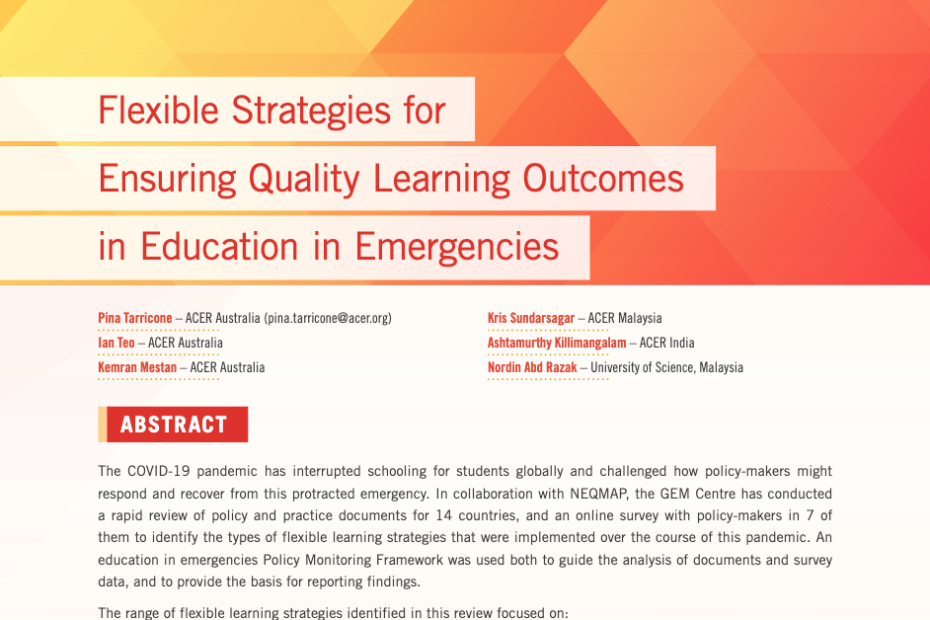
The COVID-19 pandemic has interrupted schooling for students globally and challenged how policy-makers might respond and recover from this protracted emergency. In collaboration with NEQMAP, the GEM Centre has conducted a rapid review of policy and practice documents for 14 countries, and an online survey with policy-makers in 7 of them to identify the types of flexible learning strategies that were implemented over the course of this pandemic. An education in emergencies Policy Monitoring Framework was used both to guide the analysis of documents and survey data, and to provide the basis for reporting findings. The range of flexible learning strategies identified in this review focused on:
- enhancing system level processes to ensure quality learning outcomes
- streamlining the curriculum
- utilising a range of student assessment and monitoring approaches
- improving inclusion and equity for vulnerable learner groups
- supporting school leaders and teachers using education tools and resources, professional development courses, and support networks
Author(s): Pina Tarricone, Ian Teo, Kemran Mestan, Kris Sundarsagar, Ashtamurthy Killimangalam, and Nordin Abd Razak
Year Published: 2021
Language: English
Country: Thailand
Download: https://neqmap.bangkok.unesco.org/wp-content/uploads/2022/09/380968eng.pdf


